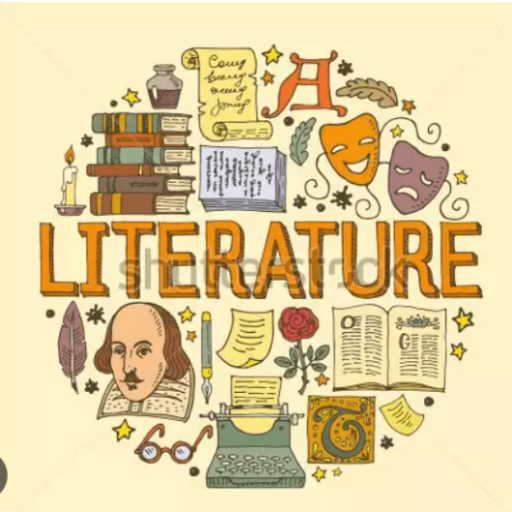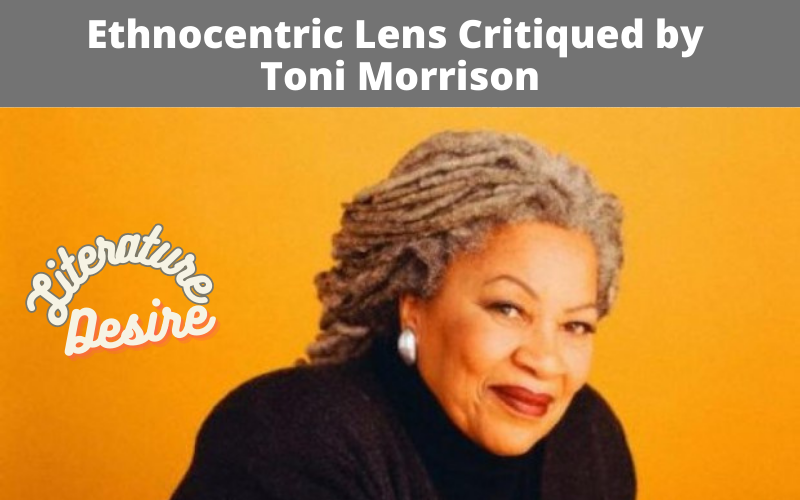In this article, we delve into the concept of the ethnocentric lens critiqued by Toni Morrison, examining its relevance, impact, and lessons for society.
In today’s globalized world, the exploration of diverse cultures and the recognition of their significance are of paramount importance.
Advertisement
However, the lens through which we view different cultures can often be clouded by ethnocentrism, a perspective that favors one’s own culture over others. There are also crossword clues in the lens.
Advertisement
In the literary realm, renowned author Toni Morrison challenges this ethnocentric lens, urging readers to critically analyze the implications and consequences of cultural bias.
Advertisement
Ethnocentric Lens Critiqued by Toni Morrison: Unveiling Cultural Prejudice
The Definition and Implications of Ethnocentrism
Ethnocentrism, at its core, refers to the tendency of individuals or groups to evaluate other cultures based on their own cultural standards and beliefs.
Advertisement
It manifests as a bias towards one’s own culture, often resulting in the devaluation or misinterpretation of other cultures.
This lens can hinder genuine understanding and appreciation of diverse perspectives, leading to misunderstandings, stereotypes, and discrimination.
Morrison’s Literary Critique of Ethnocentrism
Toni Morrison, an acclaimed American novelist, and Nobel laureate, explores the complexities of ethnocentrism through her thought-provoking works.
With her keen insight into the human condition and her unflinching portrayal of cultural prejudices, Morrison challenges readers to question their own preconceived notions and biases.
Her novels, such as “Beloved,” “Song of Solomon,” and “The Bluest Eye,” dissect the damaging effects of ethnocentrism and shed light on the need for empathy, understanding, and cultural inclusivity.
The Impact of Ethnocentrism on Society
Ethnocentrism and Stereotyping
When viewing other cultures through an ethnocentric lens, individuals often resort to stereotyping, reducing complex cultures and identities into oversimplified generalizations.
This perpetuates harmful biases and reinforces discriminatory attitudes. Morrison’s critique serves as a powerful reminder that stereotypes undermine the richness and diversity of human experiences.
Ethnocentrism and Cultural Hegemony
Ethnocentrism can contribute to the establishment and preservation of cultural hegemony, where the dominant culture asserts its influence and dominance over others.
This can lead to the erasure of marginalized cultures, silencing their voices and eroding their traditions. Morrison’s works challenge this hegemonic structure, illuminating the beauty and resilience of cultures often overlooked or dismissed.
Exploring Toni Morrison’s Perspectives
Morrison’s Insight into Historical Trauma
In her novels, Morrison often delves into the historical trauma experienced by marginalized communities, particularly African Americans.
By examining the deep-seated wounds inflicted by slavery, racism, and cultural oppression, she highlights the interconnectedness of cultural identity, history, and the lasting impact of ethnocentrism.
Her poignant narratives act as a call to action, urging society to confront its past and strive for a more inclusive future.
The Complexity of Cultural Assimilation
Through her characters’ journeys, Morrison explores the multifaceted nature of cultural assimilation.
She challenges the notion that assimilation equates to progress, questioning whether the erasure of cultural heritage is a fair price to pay for societal acceptance.
By doing so, she encourages readers to embrace cultural diversity and reject the limitations imposed by an ethnocentric worldview.
Conclusion
Toni Morrison’s critique of the ethnocentric lens serves as a powerful tool for dismantling cultural prejudices and fostering a more inclusive society.
Through her poignant narratives, she urges readers to question their own biases, challenge stereotypes, and embrace the richness and diversity of human experiences.
By engaging with her works, we can begin the transformative journey towards a world free from the shackles of ethnocentrism, where every culture is celebrated and respected.
Frequently Asked Questions
Toni Morrison’s critique resonates with contemporary society by illuminating the enduring effects of ethnocentrism on marginalized communities. Her works remind us of the importance of embracing cultural diversity and dismantling discriminatory structures.
Toni Morrison’s critique teaches us to challenge our own biases, seek genuine understanding of other cultures, and recognize the interconnectedness of humanity. It reminds us that empathy and cultural inclusivity are vital for creating a harmonious and equitable society.
Morrison’s critique contributes to the discourse on cultural representation by emphasizing the need for authentic, nuanced portrayals of diverse cultures. She calls for an end to cultural appropriation and encourages responsible storytelling that respects and honors the complexities of different communities.
Individuals can challenge their own ethnocentric perspectives by actively seeking out diverse narratives, engaging in cross-cultural interactions, and reflecting on their own biases. Educating oneself about different cultures and questioning preconceived notions are essential steps toward embracing a more inclusive worldview.
Morrison’s critique holds immense relevance in the fight against systemic racism as it exposes the root causes and enduring consequences of racial prejudice. By challenging ethnocentrism, Morrison encourages society to confront its deep-seated biases and work towards dismantling oppressive systems.

